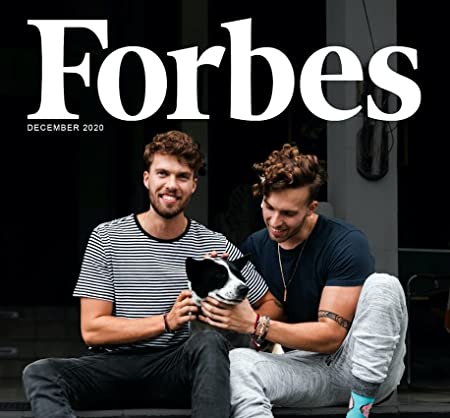Clickbait titles work, because I came across this interesting video essay with a very vague name and clicked on it.
Contrepreneurs
What’s it about? The creator, Folding Ideas, talks about the idea of contrepreneurs — a “mix of con-artists and entrepreneurs” that scam people by getting them to pay for their advice on how to create a passive income. The ‘scam’ here is nothing that will land them in legal trouble: they sell advice, and have all the disclaimers neatly hidden away that they don’t guarantee any results. In the video, Folding Ideas focuses on one particular duo that are “a little too honest about the nature of the scam”: the Mikkelsen Twins.

The Grift Pipeline
To generate passive income, they want you to create audiobooks, and sell them through Audible. Once the work of creating the book is done, every time someone buys a copy you’ll receive some royalties without any additional work, as long as the book is on Audible.
But not everyone can write or narrate books. This is where they make use of the fact that with the modern publishing platforms, anyone can publish books (I’ve written about this before). You can have others do all the work for you:
- On Amazon, look for a category that has books appearing multiple times in the best-selling list to find a popular subject for your book.
- Have someone write a manuscript for you (for example using the ghostwriting service The Urban Writers)
- Have someone narrate the manuscript for far too cheap by directly contacting narrators that are available on the ACX marketplace, bypassing the platform itself
- Have someone design a cover for your book, for example using Fiverr.
- Sell your book on Audible
It’s an interesting proposal, putting in next to no effort and only a little bit of money to create an income that requires little upkeep.
That’s the idea, anyways. You’re paying them for advice, not guaranteed results.
There are some observations I want to make want to make on this.
The Self-publishing Dream
First, this proposal is only possible because of the way modern publishing platforms enable authors to self-publish. Audible and similar platforms bypass the traditional way of selling books through agents of big publishers.
A success story of self-publishing is Hugh Howey, who reached bestseller status by selling his Silo series through Amazon’s Kindle Direct Publishing (KDP) out of frustration of dealing with traditional publishers.
Grindset Schmindset
The twins use the popularity of the ‘grind’ mindset to sell their advice: invest in yourself and put in the hours and you’ll be successful.
Howey champions himself as a prime example of a winner in the ‘grind culture’. For example, in the blog post “Advice to Aspiring Authors“, he explains how he too had to put in all the work, invest up front, and spent so much time in writing that it was a second job. His advice: make long hours, invest in yourself, keep writing and you’ll make it in the end.
This is quite similar to what the twins offer: you’ll have to make an initial investment in a ghostwriter, narrator and designer (and of course a subscription to their own advice videos), but here all the hard work is outsourced.
Platforms like KDP cater perfectly to the people following this mindset — your success is not dependent on whether literary agents accept your work, but only on how well you manage to sell your work.
Vampire Romance Hell
Self-publishing platforms thrive on genre fiction. These platforms are often flooded with books of a specific genre (cough vampire romance). There is a reason for this. Genre fiction is a relatively easy way to have your work be read: fans of a genre know what they want. Genre fiction is so popular, that some say that “fiction in the Age of Amazon is genre fiction”.[1]
Fiction writers are not the only ones to have noticed this. The twins base their idea on the idea that you can make use of the popularity of a genre by looking at the bestseller list for the categories that are popular, and then basing your book on that.
Where’s the Money?
Fourth, no one gets paid enough, except the twins themselves.
Self publishing is inherently risky: with traditional publishers you’ll at least have some confidence in the success of your work because it was accepted. Additionally, if you publish your work outside of the traditional, you’ll have trouble finding a union. If Amazon decides to take issue with your work, or if you have payment issues. Many traditional author’s unions that would help you defend your case if a conflict with a publisher appears require a minimum of earnings before you can join, or worse, only accept Authors publishing the traditional way.[2]
In order to sell you on their proposal, the twins recommend you keep the costs for outsourcing down by directly contacting narrators instead of working with them through ACX. Why? Because they advice you to offer only a paltry $30 per hour of finished work, waaaay below the $250 minimum of the narrator’s union.[3]
Finally, success is not guaranteed. You’re paying the twins for advice, not results. If you spent as little as possible on a ghostwriter, narrator, and cover designer, well, you get what you pay for.
Have a look at the covers that cover designers advertise with, and think about whether you’d ever buy a book with such a cover.
So who wins? Not the ghostwriters, who earn the bare minimum to churn formulaic and boring texts. Not the narrators, who get paid rates under union minimum. Not you, because your books will be of such a low quality that hardly anyone will buy your book.
No, the only winners are the Mikkelsen twins, because you just paid $2000 for their advice.
- M. McGurl, ‘Everything and Less’, Modern Language Quarterly, vol. 77, no. 3, pp. 447–471, Sep. 2016, doi: 10.1215/00267929-3570689.↩︎
- Kozlowski, Michael. 2014. “Self-Publishers Should Not Be Called Authors”, https://goodereader.com/blog/commentary/self-publishers-should-not-be-called-authors. Accessed 2022-12-20↩︎
- ACX Health and Retirement Contribution Conditions for SAG-AFTRA Producers, 2020, https://www.acx.com/help/conditions-for-aftra-h-r/200680850, Accessed 2022-12-20 ↩︎



I really enjoyed your post! I have a strong opinion on this matter. This, as well as some other passive income strategies (like selling printouts on etsy and what have you) create masses of people creating stuff just to earn money, and preferably with minimal efford. This takes away the space for people who actually want to create things or have something to convey or to share, people who have been putting efford to build something not just for money but also because they love doing it.
I’m worried about that as well. I think generative AI like GPT3 and Stable Diffusion will harm the discoverability and monetizability of artists.
I’ve already received a christmas card featuring a clearly AI-designed artwork, meaning that at least one company has succesfully managed to cut out paying real artists.
Another thing I’ve noticed is that when using Google for programming troubleshooting, there’s loads of SEO-optimized blogs filled with generated crud that make real answers a pain to find.
This will push out tradional artists from paid jobs and make real matter experts impossible to find in a sea of generated content.
Still love chatGPT tho
Thanks, this was really interesting! I didn’t know about the twins before, and I enjoyed your description of an Amazonian vampire romance hell. The photoshopped image of them on Forbes reminded me of Ruja Ignatova, who had a cryptocurrency multi-level marketing scam and she also claimed to be on Forbes, but it was actually a paid advert within Forbes. The circularity of the twins marketing their marketing skills also resonates with the Ruja story – I recommend a deep dive if it interests you
Yep, almost the same story with the twins—the ‘Forbes-featured’ article [1] was written by Celinne Da Costa [2] as a ‘contributor’ which is something completely different from a position as staff. Even worse, she’s a ‘Brand Story Expert’, meaning that the article is a straight up advertisement.
Edit: darn, her ‘Criminal activities’ header on Wikipedia is quite something. I remember OneCoin, a ‘crypto currency’ which was all fake transactions.
[1]: https://www.forbes.com/sites/celinnedacosta/2021/12/28/pushing-a-new-amazon-business-model-to-the-forefront/
[2]: https://twitter.com/CelinneDaCosta
This article makes me think of the ungodly amounts of “How to make money online” articles on the writers platform Medium. They are all about the same thing (copywriting, ghostwriting, dropshipping, etc) and it makes me think that writing articles about making money is the best way to start making money on the internet